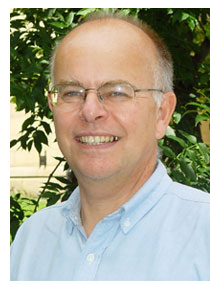Highly cited - Professor's work tops the tables
Thu, 24 Nov 2011 14:17:00 GMT
 THE University of Huddersfield’s Professor Nigel Parton (pictured) has been teaching, researching and writing about child welfare for more than 30 years. And his work is still at the cutting edge. Figures prove that his books and articles are among the most widely read and cited in the field.
THE University of Huddersfield’s Professor Nigel Parton (pictured) has been teaching, researching and writing about child welfare for more than 30 years. And his work is still at the cutting edge. Figures prove that his books and articles are among the most widely read and cited in the field.
For example, the British Journal of Social Work – one of the world’s leading journals of its type – publishes a monthly update of the most frequently-cited articles from present and past editions. The November 2011 table shows that Prof Parton has no fewer than four entries in the top ten. No other writer has multiple placings.
The work that earns repeated citations for Prof Parton covers many years. At eighth place in the BJSW table is a 2008 article which examines the changing forms of knowledge in social work over the past thirty years and its implications for theory and practice. In third place is an article published in 1998 which analysed the current state of child welfare policy and practice and how it had changed in recent times. This article was based on Prof Parton’s inaugural professorial lecture at the University of Huddersfield.
Another article that still earns citations dates from 1979, dealing with child abuse, the topic that has been central to Prof Parton’s career, which began in 1977 when he became a lecturer in social work at what was then Huddersfield Polytechnic.
After becoming Professor in Child Care Studies at Keele University in 1993, he returned to the University of Huddersfield in 1994 to become Professor in Child Care and Director of the Centre of Applied Childhood Studies. In 2006 took up the Foundation NSPCC Chair in Applied Childhood Studies.
In addition to a long list of articles published during the past 32 years, Prof Parton – who is on editorial board of 11 academic journals – has authored, co-authored or edited 20 books. There are two new ones – the co-edited Child Protection Systems (Oxford University Press) and the co-authored Child Protection Systems in the UK (Jessica Kingsley Publishers).
Since the 1970s, Prof Parton has analysed the changing responses to child abuse and the shifts in policy. Currently, he says, the issue is fairly prominent on the political agenda and in the media – although the latter’s level of interest is not always a positive thing, as high profile cases can create a climate of fear and a culture of blame.
“The present Government has recognised this to a degree. A recent review of child protection tries to get away from this blame culture, “ said Prof Parton, who notes that although social workers are heavily criticised after specific scandals and enquiries, there has never been any attempt to give responsibility for child protection any other profession or agency, such as the police or health service.
“Child protection is still seen as job for social workers, even though they have been heavily criticised over the years and I find that extremely interesting.”







